Episodes
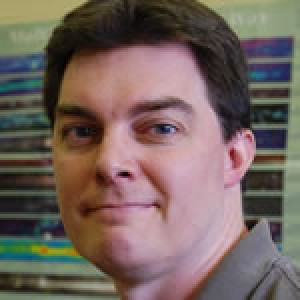
Monday Jul 22, 2019
Episode 069 - Fr. Lawrence Machia OSB and Daniel vanden Berk, part II
Monday Jul 22, 2019
Monday Jul 22, 2019
- For background on Fr. Machia and Dr. Vanden Berk and this interview, see the show notes for Episode 68.
- In Episode 69, we mentioned approvingly one of the many books about Galileo, who was central to Fr. Machia’s talk at the conference. The book is Galileo’s Daughter. Contrary to a still-commonplace assumption in popular culture and the average person’s understanding of history, Galileo did not see his life as one centered on conflict with the Catholic Church.
- People’s instincts to see a huge conflict between science and religion in our own time deserve to be taken seriously. Co-host Paul points out that, even in his youth, he was interested in the polemic potential between his faith and his interest in geology. This was crystallized (no pun intended) by his reading of Great Geological Controversies, published in 1983 by Oxford University Press. It identified challenges—among scientists themselves—which were raised to previous understandings in geology.
- How can scientists of faith, such as the members of the Society of Catholic Scientists, play a role in addressing the conflict between science and religion as it exists today? They can act as witnesses to the compatibility of the two fields of knowledge in their own lives, said Dr. Vanden Berk.
- Fr. Machia pointed out that, as expressed by Saint John Paul II, one key to the compatibility is that one discipline does not pretend to do what the other does. Don’t read the Bible as a science text, he said, since science is not what the Bible is about; it spends a relatively tiny amount of time on subjects that might be construed to be science-focused. The two fields of knowledge have their own distinct competencies.
- Saint John Paul II wrote about the compatibility of science and religion. Here’s an essay by noted bioethicist Father Tad Pacholczyk on the subject, drawing from John Paul’s insights.
- As Fr. Machia points out with reference to the insights of Pope John Paul, one area of relationship between the disciplines of science and religion is the subject of ethics. After all, what’s the point of doing anything, like scientific research, if you’re not thinking about why you’re doing it? In the case of science, humans confront issues of power over creation—and how to exercise that power. That answer is informed by how we see our humanity, and that question was exactly the topic of the SCS conference at which we held this podcast discussion.
- Galileo himself wrote about the compatibility of these fields of knowledge in his letter to Madame Christina of Lorraine in 1615. Here’s an essay discussing that letter.
Times continue from the Episode 68 listing.
28:00 Galileo's Daughter
30:00 Biblical minimalism
32:00 Geological arguments about the Flood
34:00 Conflict thesis persistence; Daniel another who never saw the conflict
36:00 Need to teach the contemporary theory, wherever our religious theories place us
37:00 Contributions of Catholic scientists to the future of science: need to respect the "volume argument"
38:00 Galileo on the Bible as not an astronomy textbook
40:00 Past, present and future of science
42:00 Wrapup
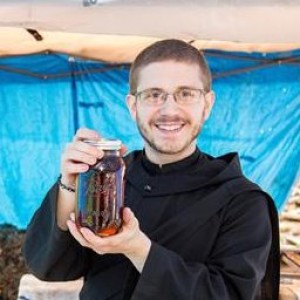
Monday Jul 15, 2019
Episode 068 - Fr. Lawrence Machia OSB and Daniel vanden Berk, part I
Monday Jul 15, 2019
Monday Jul 15, 2019
- Father Lawrence Machia, OSB, is a Benedictine monk at St. Vincent College and Archabbey in Latrobe, PA. The public can view his 2019 Society of Catholic Scientists presentation on You Tube.
- Father Machia’s talk made reference to Galileo’s letter to Benedetto Castelli.
- Dr. Daniel Vanden Berk is an associate professor of physics at St. Vincent College.
- Fr. Machia and Dr. Vanden Berk, both very interested in astronomy, have worked together on designing planetarium shows on the St. Vincent campus. They have always seen the complementarity of science and religion, faith and reason, in contrast to many people’s rejection of religion based on supposed conflicts with scientific, rational, experiential learning.
- Dr. Vanden Berk was intrigued at an early age by the “Cosmos”- series presented on PBS by Carl Sagan, but the program posited a conflict between science and faith.
- Among Dr. Vanden Berk’s astronomical adventures: working on the Sloan Digital Sky Survey. He has worked with the Fermi National Accelerator Laboratory, processing data captured by the Digital Sky Survey.
Episode timeline:
3:00 Machia's time in college, science to theology
5:00 Machia's beginning to discern a religious vocation
8:00 St. Vincent College and the archabbey
10:00 Pre-novitiate and novitiate
12:00 Vows
15:00 Why TSSM, following on from Lawrence's plans to finish and continue his physics education
16:00 Begin vanden Berk
18:00 Sci-fi influences
20:00 He and his wife's discernment process
22:00 Daniel's early career, the early Hubble mission
24:00 Sky surveys
26:00 Texas sky survey
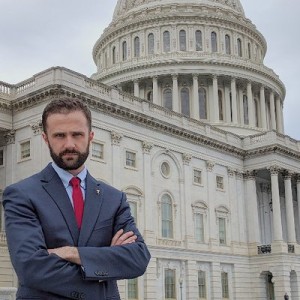
Monday Dec 31, 2018
Episode 040 - Kirby Runyon: Christian planetary scientist
Monday Dec 31, 2018
Monday Dec 31, 2018
I had the chance to have an unofficial interview with Kirby Runyon. (Planetary science is a very publicity-heavy field, and planetary scientists often labor under certain constraints regarding their contact with the media. We avoided mentioning his institutional affiliation to emphasize the point that this interview in no way characterizes any official position by his institution. You can find out where he works, and get access to some of his work, via web search if you are curious, and there's a clue around 13:00 as well.)
We opened the interview with a discussion of Kirby's research on surface processes on planets. He works on data returned from the Moon, Mars, and Saturn's moon Titan to evaluate how winds, asteroid impacts, and other forces shape the surfaces of those bodies.
Read the rest of this entry »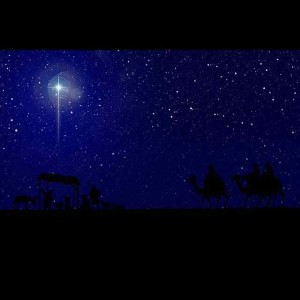
Monday Dec 24, 2018
Episode 039 - Star of Bethlehem
Monday Dec 24, 2018
Monday Dec 24, 2018
In this episode we try to give a little workshop on thinking for yourself about a thorny passage in the Bible, specifically what we are to make of this star that supposedly influenced the Magi (wizards? astrologers?) from "the east" to come to Jerusalem looking for Jesus.
Read the rest of this entry »
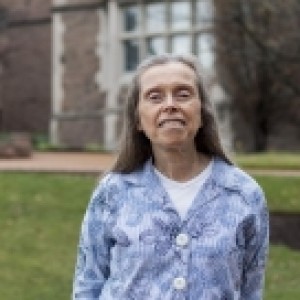
Monday Dec 10, 2018
Episode 037 - Jill Pasteris: Christian scientist
Monday Dec 10, 2018
Monday Dec 10, 2018
3:00 Jill's career
5:00 Finding companionship as Christian scientists (not Christian Scientists...that's different...)
7:00 "Spiritual beings having a human experience"
8:00 Bioapatite; clearing up "loose ends" making a 20 year career arc
9:00 Apatite and phosphate: environment
13:00 Flint, Michigan: lead and protective minerals
14:00 Raman spectroscopy
16:00 Raman on the Mars 2020 rover; Alian Wang
17:00 Laser pointers, cat videos [the brave new world we live in]
18:00 The physics of Raman
19:00 Why lasers and Raman went hand in hand
20:00 Rayleigh vs. Raman scattering
21:00 Raman spectra
22:00 Raman: a (usually) nondestructive technique
23:00 The lecture example and the ease of sample prep for Raman
25:00 Raman peak heights and thermodynamics
26:00 Fingerprinting vs. understanding
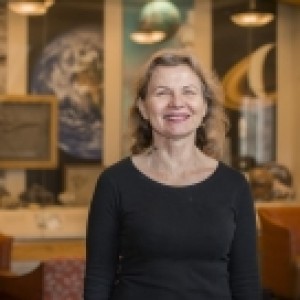
Monday Nov 26, 2018
Episode 035 - Anne Hofmeister Shakes Up Earth Science
Monday Nov 26, 2018
Monday Nov 26, 2018
TSSM goes heavy: hard-hitting journalism from one of science's great controversialists, Anne Hofmeister. Intrigued? Disagree? Write me an email (giesting@alumni.nd.edu) or look her up at Washington University in St. Louis' EPS department website.
The times below are keyed to the start of the interview and ignore my opening (just over 2 min).
0:00 Introduction
1:00 Anne's background (sorry, this part Anne was talking so quietly that I can't seem to fix it with Audacity, but bear with us; we moved the microphone and figured some things out and it gets better)
2:00 Spectroscopy and heat transfer
3:00 Thermal conductivity experiments and their pitfalls
5:00 Criticism of the history of thermodynamics and heat transfer; identification of light and heat
6:00 Problems with equilibrium and elastic collisions in theories of thermodynamics
8:00 Criticism of phonon theory
10:00 Electron and vibrational transfer of heat decoupled; metals and heat transfer
13:00 Garnet
14:00 Earth's interior: convection, the Rayleigh number
15:00 Viscosity
16:00 The Earth's mantle: nearly all solid
17:00 Plate tectonics without mantle convection
18:00 An even more radical idea: heat is being trapped inside the solid Earth
19:00 [there was a distortion I had to cut]
20:00 Implications: heat generation is in the crust (this part is widely known!)
21:00 Implications: the core is melting, not solidifying?
22:00 The geodynamo and magnetic field
23:00 The core: buffered at the temperature of melting high pressure iron
24:00 Magnetic modes diagram for the planets: spin and magnetic field
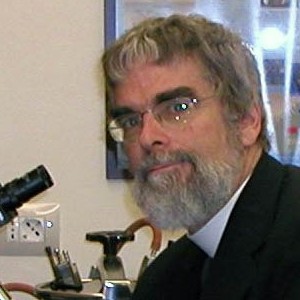
Monday Oct 29, 2018
Episode 031 - Br. Guy Consolmagno: Teaching Science and Human Nature
Monday Oct 29, 2018
Monday Oct 29, 2018
Paul moves from popular books to Br. Guy's 1990s planetary science textbook, Worlds Apart which Paul switched to in 2015, despite its age, precisely because of Br. Guy's explicit acknowledgment that "students want to learn about THE PLANETS." The chapters of the book therefore start with a saga of some planet, and then focus in on some process that is well exemplified on that planet. Other textbooks try to focus on processes and lose ME, let alone my students, most of whom were headed toward high school teaching.
Br. Guy goes on from the subject of his books to talk a little about John Scalzi's take on the common advice to authors to "kill your darlings"..."the failure mode of clever is idiot." (I am not unfamiliar with John Scalzi, who is certainly a master of the craft: see my review of Old Man's War on Goodreads.)
Bill references the science & religion initiative at the McGrath Institute at Notre Dame, to which Br. Guy has contributed. The Institute tries to form high school teachers with a sense of the complementary, rather than adversary, nature of science and faith. Br. Guy goes on to talk about how hard a high school teacher's job is, and the need for enthusiasm in presentation. If you are listening to two enthusiastic people talk shop about almost any topic, however little you yourself know about it, you get drawn in. That's the goal, except most high school teachers have to do it by themselves.
A teacher that can maintain enthusiasm and also model comfort with not knowing the answer and intellectual humility..."I don't know; let's go find the answer"...is a great gift to insecure, "self-conscious but not self-aware" teenagers.
Paul probes Br. Guy about the modern attitude of trying to discard as much of the past as possible. Br. Guy comments how living in Italy gives you perspective on how the attitude has shifted from the medieval attitude (discussed in great depth by CS Lewis in The Discarded Image) of reverence for the past, whose achievements we could never match, to the modern one. Rome gives you the perspective that while science and engineering may have advanced, art and architecture have not. Humanity can only progress so far...we can't get away from original sin. We do things we know are wrong, destructive, etc. That's why Twelve Step programs exist. A great 20th century tragedy, as has been noted many times, is the failure of great schemes (like communism) for revising society in some theoretically perfect new form.
A chance reference to Shakespeare, and then to Star Trek VI (of course), leads us off into a discussion of language and the way it shapes our lives, from the fun people have had since Tolkien inventing whole new languages, to the difference in what Sarah cooks for Abraham's visitors in English (yuck) versus Italian. Br. Guy makes the provocative statement that one has to learn more new words in freshman biology than in freshman French. When you learn philosophy, you learn new words, and with those words (if you're really learning them) you learn new ways of thinking.
As a final note, that's why you need others to truly learn and work in a subject...or in a faith. The Ethiopian that Phillip baptized in the Acts of the Apostles had a hard row to hoe.
https://vofoundation.org/faith-and-science
Books mentioned in the interview:
Wind, Sand, and Stars by Antoine de Saint-Exupery
Unapologetic by Francis Spufford
The Rock by T.S. Eliot
Image courtesy Robert Macke (wikimedia Commons)

Monday Oct 22, 2018
Episode 030 - Br. Guy Consolmagno: Galileo and Carl Sagan
Monday Oct 22, 2018
Monday Oct 22, 2018
Br. Guy starts with a brief bio of himself as the meteorite curator and now director of the Vatican Observatory. If you aren't familiar with his life and career, I cannot suggest strongly enough to go find a copy of Brother Astronomer. Paul takes the opportunity to geek out a bit about the VO's collection of Martian meteorites, which includes pieces of varying size of the three flagship members of the three great classes of Martian meteorites: Chassigny, Shergotty, and Nakhla. We discuss the romance and suspense of finding meteorites in the dry deserts.
Paul then poses the question of the recently discovered Galileo letter. Br. Guy defuses a bit of the noise surrounding this letter, likening the situation to scientists down to this very day putting out provocative theses and then pulling them back under criticism from their peers.
(My dog Riley starts barking at UPS personnel sometime between 13:00 and 13:30. This was an eventful session.)
Galileo in his time was rather like Carl Sagan in his time: a popularizer and a controversialist. Br. Guy, who met Carl Sagan a few times, recognizes the value that both of these controversial figures brought to the field. He goes on to discuss the travails that Sagan faced in his own life, dealing with fame and the risks he ran to get his message out (the massive debt he incurred in making Cosmos) and notes his own fraught relationship with his own faith.
Carl Sagan was a serious scientist, in the 1960s one of the first to grapple with the unexpectedly, incredibly hot temperatures the first Venus probes reported and to link it with the very thick carbon dioxide atmosphere Venus has.
Br. Guy talks a little about his experience "coming out" as a religious believer, and the opposition he _didn't_ receive in publicizing his decision to become a Jesuit. He moves on to discuss the romance of science, why we're attracted to it, and why it's important to steer a middle path (that Aristotelian mean again) in both science and faith between "I already know everything worth knowing" and "God / the universe is so big I can never understand it." Of course you won't learn it all, but of course you'll be able to learn and love something. He likens it to a good friendship or romantic relationship, in which you rejoice in both the known and the unknown.
Paul probes Br. Guy on whether Sagan influenced him in his own popular books. Br. Guy professes that not only did Carl Sagan influence his confidence in being able to discuss the wonders of planetary science and astronomy with a popular audience, as well as his colloquial tone, but even his wardrobe served as a good precursor (compare Carl at https://www.imdb.com/name/nm0755981/ with Guy at https://www.radiokerry.ie/portraits-of-gc36-delegates/ and for good measure another great Italian scientist who wore the collar well https://www.torinoscienza.it/personaggi/giuseppe-mercalli).
Image courtesy Robert Macke (wikimedia Commons)

